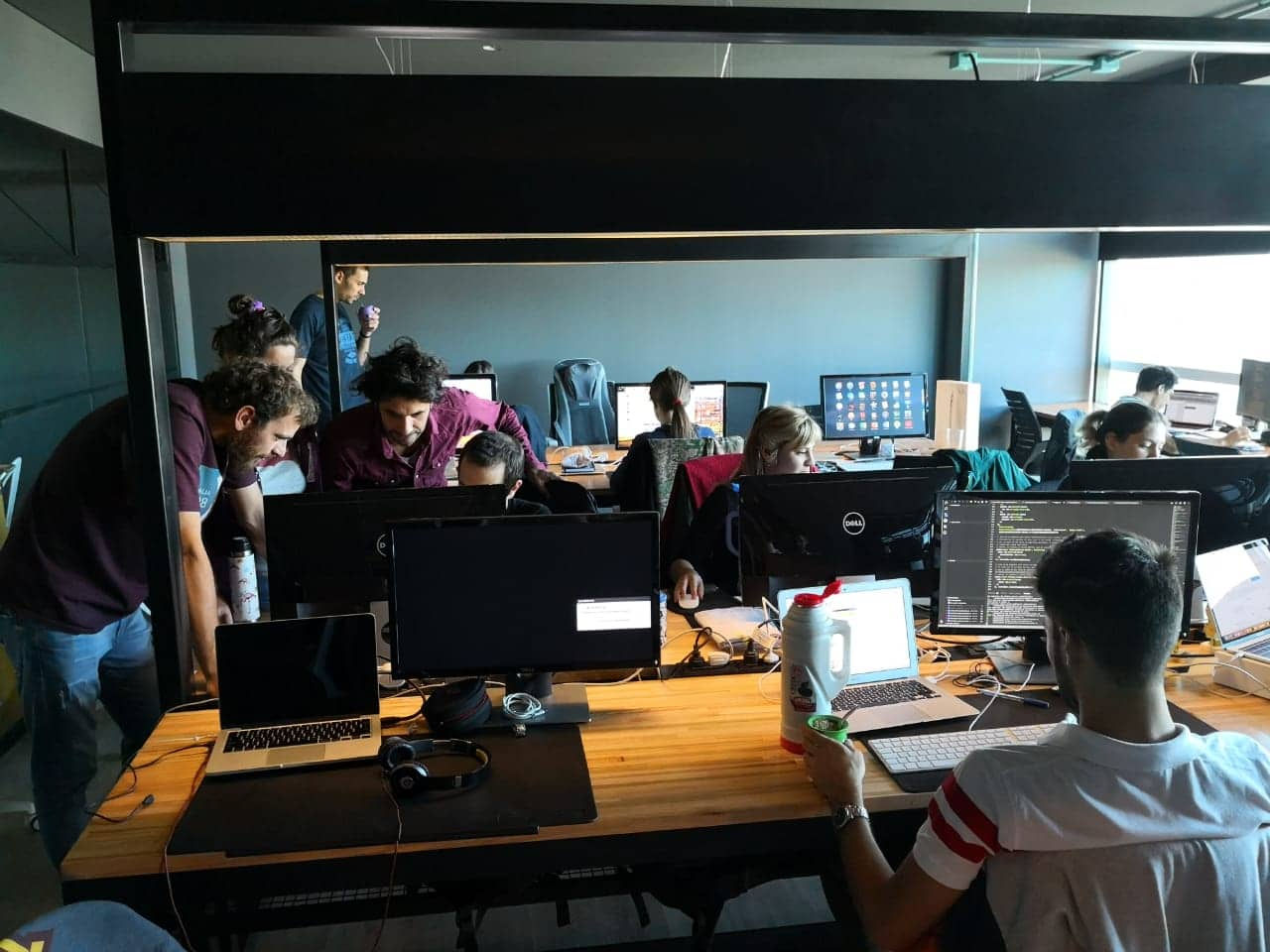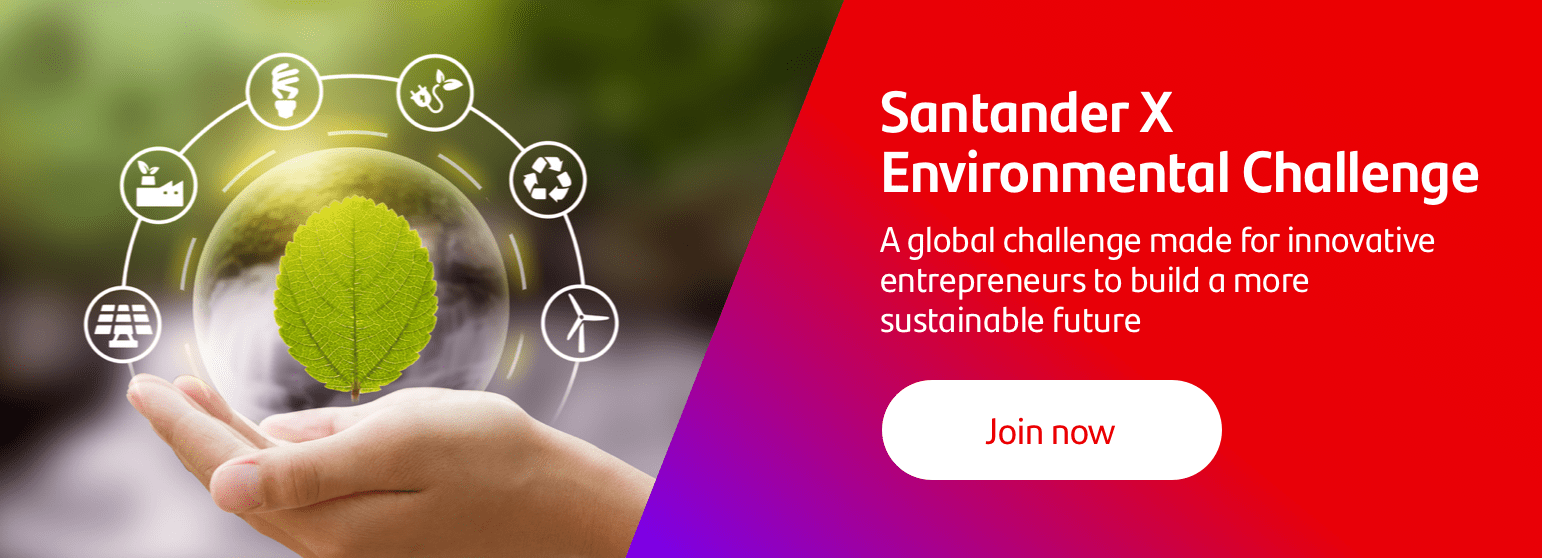Sustainable finance: why is it an investment for the future?
Sustainable financing has become increasingly common, as demonstrated by the latest data gathered by Schroder's Global Investors Study 2020. According to the study, 47% of global investors already opt for sustainable investment funds. Moreover, after the experience of the covid-19 pandemic, many more people have realised that the green transition is the only way out of the economic and humanitarian crisis.
It’s clear that investments and economic growth increasingly revolve around sustainable development. Proof of this can be found in the Sustainable Development Goals (SDGs), the US officially rejoining the Paris Agreement, the more than 17 trillion dollars of investment with environmental, social and corporate governance criteria in Europe, and the more than 11 trillion invested by the United States (with an increase of 20% over 2019 according to the latest report from the Organisation for Economic Cooperation and Development (OECD).
What is sustainable finance?
The industry of the present and future should base its business model on talent, skills and the necessary knowledge to build projects that advocate respect for the environment and care for the planet.
Sustainable finance refers to economic initiatives that support projects aiming to mitigate climate change or have a positive impact on the planet.
These types of projects are being spearheaded by a new generation of entrepreneurs who are well aware of the battle to curb climate change. Sometimes, projects like this cannot get ahead due to a lack of funding and difficulties finding investors interested in this type of initiative. For example, according to data provided by the International Monetary Fund for Spain, it would take an investment increase of 4 trillion extra dollars per year to comply with the SDGs of the 2030 Agenda.
Luckily, more and more investors are following the ESG criteria when it comes to funding a project, not only to ensure profitability but also to champion ethical and sustainable industry.

ESG investment criteria
For an investment to be considered responsible and ethical, it must include environmental, social and corporate governance considerations in its analysis and decision-making processes. For this to be possible, companies have to provide reliable and transparent data when communicating information about their operations in their sustainability reports.
It's important to be clear what each of these ESG criteria implies, in addition to the usual investment criteria such as profitability and risk:
- [E]nvironmental criteria: any sustainable initiative or project must base its decision-making on how this affects the environment. Thus, any decisions about a company's operations must focus on reducing greenhouse gas emissions to a minimum, using renewable energies, energy efficiency, the responsible use of natural resources and chemical pollution.
- [S]ocial criteria: social criteria focus on a company's relationship with the communities in which it operates. The mission of an ethical, sustainable company should be to foster the wellbeing of everyone and everything around it, working only with partners and suppliers who share the same values, such as regard for health and safety, ethical business practices, workers' rights, diversity and gender equality, for example.
- Corporate [G]overnance criteria: corporate governance considerations are related to how a company is managed. Sustainable companies should be transparent and use accurate accounting methods and communications protocols to maintain a good relationship with all stakeholders, and avoid conflicts of interest.
These three criteria help investors to match with companies that share their same values. A pioneering project working in line with the SDGs and seeking solutions for current problems will not only benefit the environment and society in general, but will also offer an excellent investment opportunity thanks to its profitability.

How to finance a sustainable project
Financing is one of the biggest challenges entrepreneurs face today. Many projects come to a halt halfway through or don't make it out of the starting blocks due to a lack of the financing needed to get started, since many entrepreneurs don't have access to the necessary funds.
Luckily, there are progressively more investors looking to put their money in promising sustainable projects, well-conceived initiatives that only need an injection of cash to get them going. Nowadays, there are many forms of sustainable financing. Some of the most popular are:
- Startup accelerators or incubators: these are public or private organisations that help and guide entrepreneurs to accelerate their growth. Startups turn to these at an initial stage to create a profitable and sustainable business model, design a customer acquisition strategy and secure initial funding. Accelerators take on all manner of projects, but those related to sustainability definitely have a better chance of getting ahead nowadays.
- Business angels: there is a growing number of private investors looking for sustainable projects to invest in. Business angels are people who have the money entrepreneurs need and who are willing to lend it to give their projects a boost. The Spanish Association of Business Angels Networks (AEBAN) is the main meeting point for investors and startup founders.
- Subsidies and public aid: public authorities regularly make public subsidies available to entrepreneurs, which can be very helpful when it comes to funding projects in the startup phase. Moreover, in the wake of the COVID-19 crisis, most European countries will be given a significant sum of money by the European Union, which will be specifically destined to projects that favour ecology, digitalisation or social cohesion.
- Sustainable entrepreneurship competitions: competitions that award young entrepreneurs and their innovative ideas have become very popular in recent years. These are generally organised by private entities that offer a major cash prize to finance the most interesting projects, besides offering a range of business resources and visibility.
In addition to the above, there are other means of funding, such as factoring, where a larger company lends money to a smaller one in return for future returns on assets; crowdfunding, where entrepreneurs can raise the money they need by means of micro-donations on a platform; or venture capital funds, a type of high-risk investment fund where companies make long-term investments in projects that have growth potential.
Santander X Environmental Challenge, a new opportunity to make your project a reality
To support sustainable development, Banco Santander, together with Oxentia Foundation, is spearheading the global Santander X Environmental Challenge, whose goal is to encourage initiatives that are sustainable and innovative and which have a positive impact on the environment. The 6 winning companies will be awarded € 120,000 to develop their solutions to curb climate change and improve people's social conditions. They will also be provided with mentoring and visibility on Grupo Santander social media channels. Projects that would like to participate can do so in one of the two available categories:
- Be Sustainable: solutions that promote green financing and investment.
- Be Mindful: solutions that help to raise awareness of the importance of reducing the environmental footprint.
Do you believe in a more sustainable future and have a project that can play a part in improving the planet? Sign up for the global Santander X Environmental Challenge and get the funding you need to develop your sustainable project. Make the most of this chance!
More interesting posts to read...
-

-
 02/09/2021 | Mike Twersky and Patricio Romero
02/09/2021 | Mike Twersky and Patricio Romero“By empowering entrepreneurs to innovate and grow, Santander is directly impacting lives and businesses”. – Mike Twersky, Founder and CEO of Whyline
Card text
